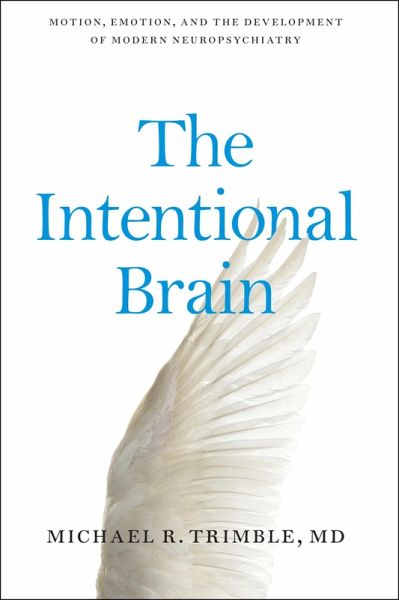
Intentional Brain (eBook, ePUB)
Motion, Emotion, and the Development of Modern Neuropsychiatry
Versandkostenfrei!
Sofort per Download lieferbar
15,95 €
inkl. MwSt.
Weitere Ausgaben:

PAYBACK Punkte
8 °P sammeln!
"A tour de force: an assessment of the 'culture' of mind-brain relations beginning with the ancients and ending in the present." -Edward Shorter, PhD, National Book Award finalist and author of A History of Psychiatry Neuropsychiatry has a distinguished history, yet its ideals and principles fell out of fashion in the early twentieth century as neurology and psychiatry diverged into separate disciplines. Later, neuropsychiatry reemerged as the two disciplines moved closer again, accelerated by advances in neuroanatomy, neurochemistry, and drugs that alter the functioning of the central nervous...
"A tour de force: an assessment of the 'culture' of mind-brain relations beginning with the ancients and ending in the present." -Edward Shorter, PhD, National Book Award finalist and author of A History of Psychiatry Neuropsychiatry has a distinguished history, yet its ideals and principles fell out of fashion in the early twentieth century as neurology and psychiatry diverged into separate disciplines. Later, neuropsychiatry reemerged as the two disciplines moved closer again, accelerated by advances in neuroanatomy, neurochemistry, and drugs that alter the functioning of the central nervous system. But as neuropsychiatrist Michael R. Trimble explains in The Intentional Brain, the new neuropsychiatry has its own identity and is more than simply a borderland between two disparate clinical disciplines. Looking at neuropsychiatry in the context of major cultural and artistic achievements, Trimble explores changing views of the human brain and its relation to behavior and cognition over 2,500 years of Western civilization. Beginning with the early Greek physicians and moving through the Middle Ages, Enlightenment, Romantic era, World Wars, and present day, he explores understandings about the brain's integral role in determining movement, motivation, and mood. Persuasively arguing that storytelling forms the backbone of human culture and individuality, Trimble describes the dawn and development of artistic creativity and traces the conflicts between differing philosophical views of our world and our position in it. A sweeping history of the branch of medicine concerned with both psychic and organic aspects of mental disorder, the book reveals what scientists have learned about movement and emotion by studying people with such diseases as epilepsy, syphilis, hysteria, psychosis, movement disorders, and melancholia. The Intentional Brainis a marvelous and interdisciplinary look at the clinical interface between the mind and the brain.
Dieser Download kann aus rechtlichen Gründen nur mit Rechnungsadresse in A, B, BG, CY, CZ, D, DK, EW, E, FIN, F, GR, HR, H, IRL, I, LT, L, LR, M, NL, PL, P, R, S, SLO, SK ausgeliefert werden.













